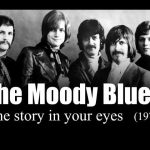“The Winner Takes It All” by ABBA

Released in 1980, ABBA’s “The Winner Takes It All” stands as a magnificent outlier in the Swedish supergroup’s discography. More than just a pop song, it delves into the raw, aching emotions of heartbreak with a profound depth rarely found in chart-topping singles. Composed by the legendary duo Benny Andersson and Björn Ulvaeus, this powerful ballad marked a distinct and courageous mature, melancholic turn for the band, revealing a vulnerability that resonated globally.
The creation of “The Winner Takes It All” is often shrouded in personal poignancy. While Ulvaeus maintains it’s a fictional narrative, it was written in the immediate aftermath of his divorce from fellow ABBA member Agnetha Fältskog. This real-life backdrop imbues the lyrics with an undeniable authenticity and raw emotional weight, allowing listeners to connect with the thinly veiled pain of a relationship disintegrating. Ulvaeus’s lyrical genius shines as he crafts a narrative from the perspective of the one left behind, facing the stark reality of loss when one party clearly “wins” the breakup.
Musically, the song is a masterclass in subtlety and emotional restraint, a notable departure from ABBA’s characteristic exuberant pop anthems. It is primarily piano-driven, with Benny Andersson’s elegant chords providing a somber, contemplative foundation. The orchestration is tastefully sparse, allowing the melody to breathe and the lyrics to take center stage. However, it is Agnetha Fältskog’s hauntingly beautiful and exquisitely vulnerable lead vocal performance that elevates the track to its iconic status. Her delivery is imbued with such palpable sadness and resignation that every note conveys the crushing weight of acceptance, making the listener feel every pang of the narrator’s sorrow. Her ability to convey profound emotion without resorting to histrionics is a testament to her vocal artistry.
The song’s timeless lyrics explore the devastating aftermath of a relationship’s end, particularly the bittersweet pangs of watching a shared life dissolve. The titular line, “The winner takes it all, the loser’s standing small,” encapsulates the cruel imbalance often felt in breakups, even when both parties suffer. Metaphors of a game or a stage show frame the finality of the separation, where one person triumphs in moving on while the other is left with nothing but memories and regret. It’s a poignant testament to the complexities of love lost, where even victory feels hollow for everyone involved.
Despite its somber theme, “The Winner Takes It All” achieved immense global success, reaching high chart positions across the world, including the top spot in the UK. Its universal message resonated deeply with audiences, proving that vulnerability and raw emotion could be just as commercially powerful as upbeat pop. This success cemented its place as an iconic, emotionally charged masterpiece in ABBA’s celebrated catalog. Decades later, it remains a powerful and frequently covered ballad, often featured in films, television, and musicals (most notably Mamma Mia!), continuing to resonate with new generations who recognize its profound articulation of heartbreak and the enduring strength required to face the end of a cherished love.










